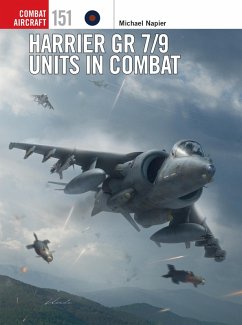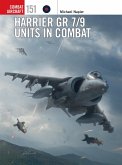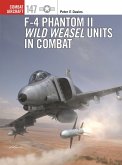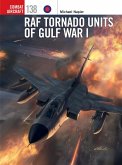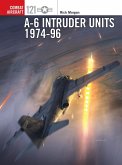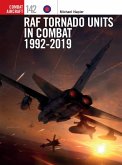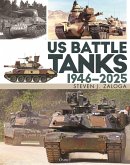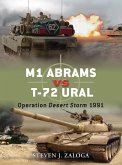Former RAF Tornado pilot Michael Napier chronicles the action-packed history of the Harrier GR 7/9, and its missions in West Africa, the Balkans, the Middle East and Afghanistan over a 14-year period of ceaseless operations.
The Harrier GR 7/9 was at the 'tip of the spear' for the RAF when it came to employing weapons against well-equipped standing armies and irregular forces in the 1990s and during the first decade of the new millennium. Assigned to the Harrier GR 7/9 Force, the aircraft undertook No Fly Zone patrols over northern Iraq, supported UN forces in the Balkans and embarked in Royal Navy carriers to bolster the RAF presence ashore in the Arabian Gulf. Harrier GR 7s also flew from HMS Illustrious over Sierra Leone in 2000 and were involved in the second Gulf War during early 2003 acting as Close Air Support for Coalition forces.
Using first-hand accounts from his extensive Service contacts, supported by both official and personal photographs and 30 artwork profiles illustrating the wide range of colours worn and ordnance employed by the 'jump jet', Michael Napier provides a rare insider's look at the deployment of Harrier GR 7/9 up to its withdrawal from RAF service in 2010. Moreover, Napier also covers the numerous upgrades received by the aircraft over the years, from more powerful engines to the creation of the GR 9/9A variants in 2005.
The Harrier GR 7/9 was at the 'tip of the spear' for the RAF when it came to employing weapons against well-equipped standing armies and irregular forces in the 1990s and during the first decade of the new millennium. Assigned to the Harrier GR 7/9 Force, the aircraft undertook No Fly Zone patrols over northern Iraq, supported UN forces in the Balkans and embarked in Royal Navy carriers to bolster the RAF presence ashore in the Arabian Gulf. Harrier GR 7s also flew from HMS Illustrious over Sierra Leone in 2000 and were involved in the second Gulf War during early 2003 acting as Close Air Support for Coalition forces.
Using first-hand accounts from his extensive Service contacts, supported by both official and personal photographs and 30 artwork profiles illustrating the wide range of colours worn and ordnance employed by the 'jump jet', Michael Napier provides a rare insider's look at the deployment of Harrier GR 7/9 up to its withdrawal from RAF service in 2010. Moreover, Napier also covers the numerous upgrades received by the aircraft over the years, from more powerful engines to the creation of the GR 9/9A variants in 2005.

